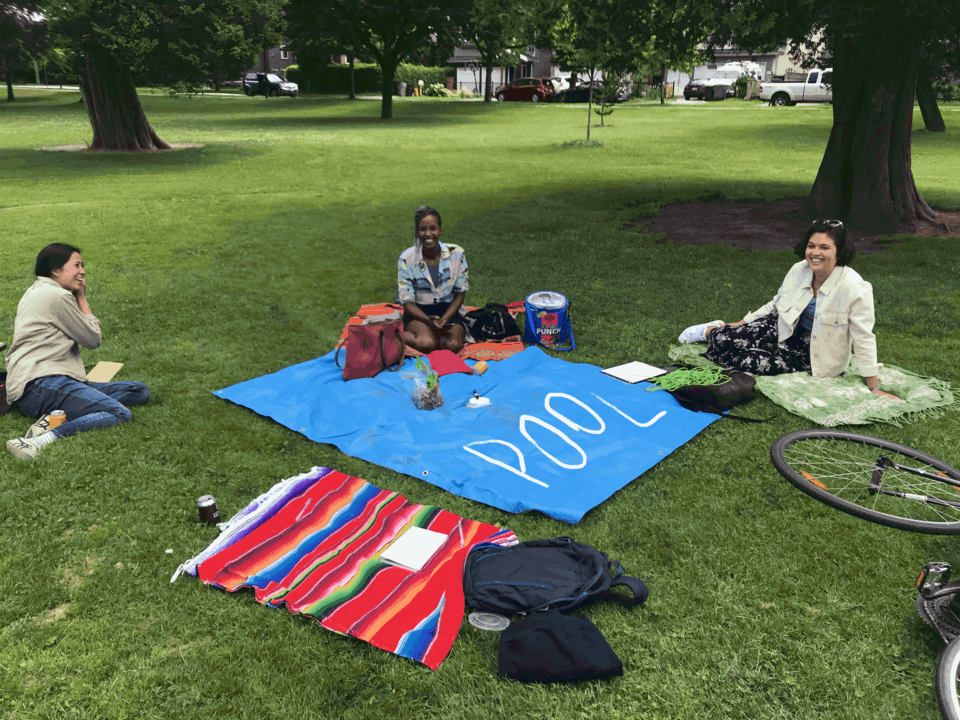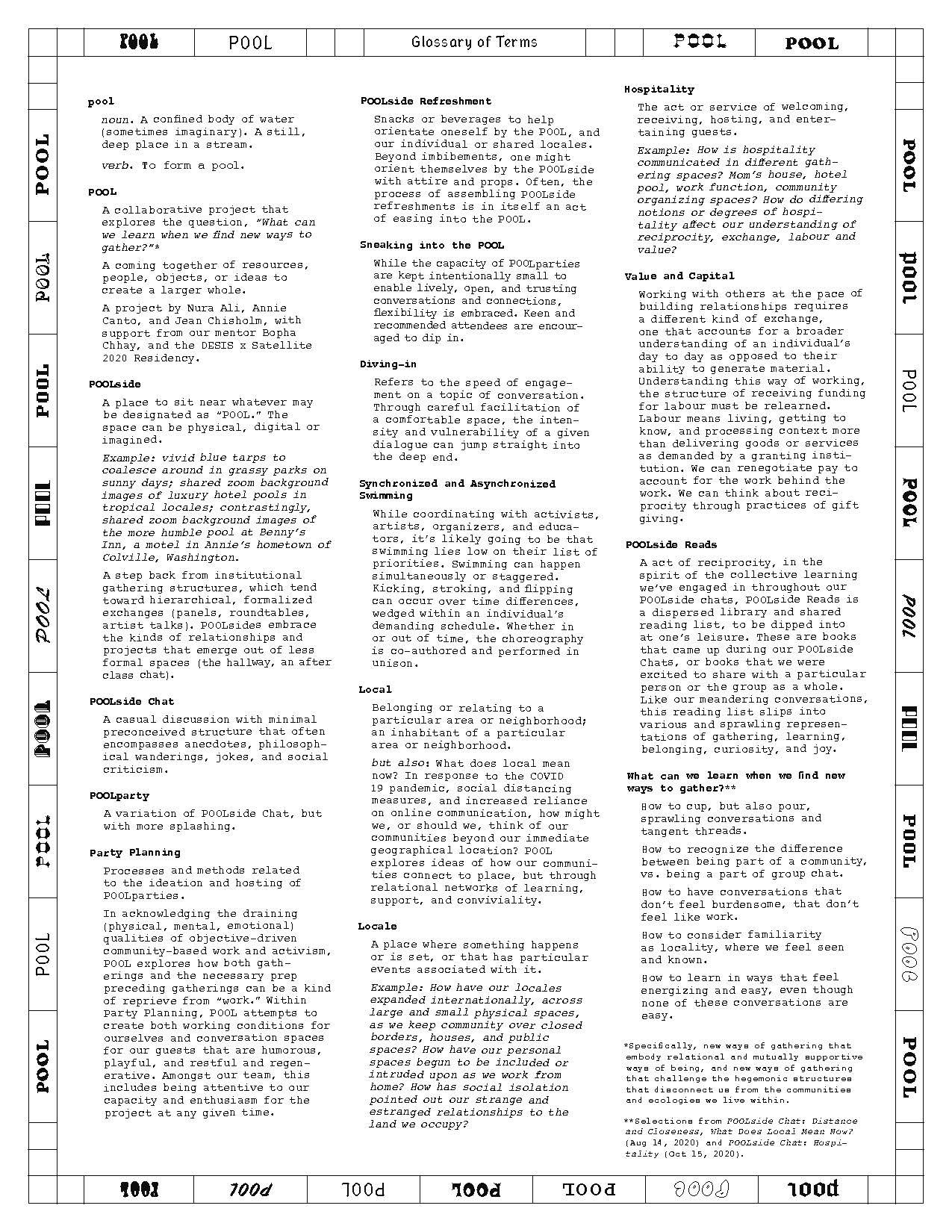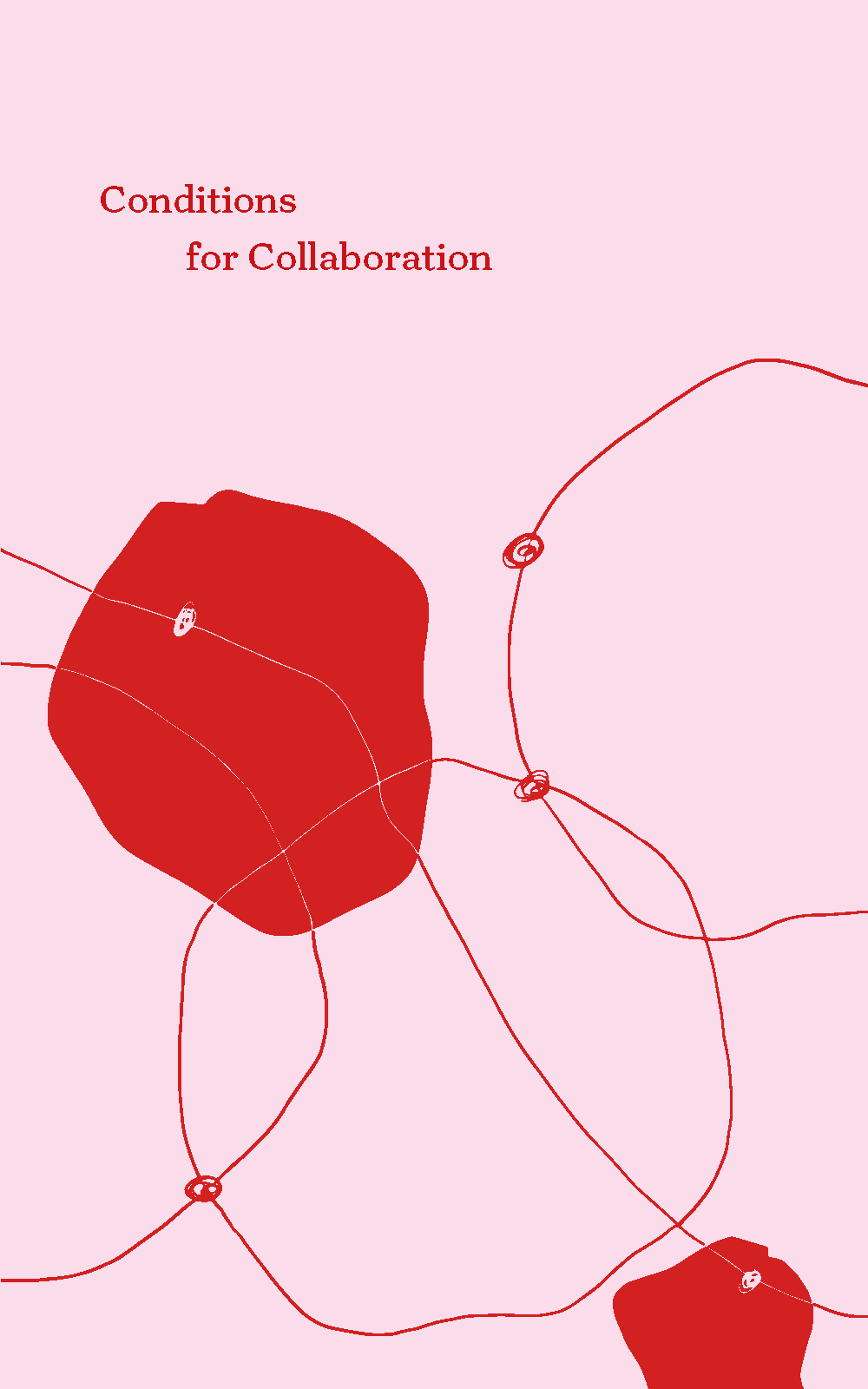Mapping swiya
2022-2024
2022-2024
Mapping swiya: A case study in place-based research ethics, researched and designed with Laura Kozak
and Marcia Higuchi, in partnership with Sunshine Coast Arts
Council.
In 2022, Robert Joe, shíshálh Elder-in-Residence at Capilano University and Coast Salish master weaver Jessica Silvey began assembling a variety of sources to map their Nation’s history and territory in partnership with Sadira Rodrigues, Director/ Curator, Sunshine Coast Arts Council (SCAC). This group engaged a design team from Emily Carr (Jean Chisholm, Marcia Higuchi and Laura Kozak) to prototype a translation of this material to large-scale form for the CapU campus, where many of the Nation’s youth begin post-secondary studies.
Phase One (completed November 2022) includes a wall-sized map of the shíshálh swiya (homelands) and traditional place names alongside a 24’ timeline detailing specifics of epidemics, changes to land title, residential school, cultural events and images held within the Nation’s archives. Simple prints and images were wheat-pasted to the hallway of CapU, creating an accessible model for students and teachers to add to.
Phase Two (Spring 2024) designed this map into riso-printed poster to be shared at community events, layering in additional histories and stories from local knowledge-keepers, gathered in response to the wall mural. Understanding the factual truths and specific details of the impacts of colonialism is fundamental for healing and resurgence of story and pride in culture.
In 2022, Robert Joe, shíshálh Elder-in-Residence at Capilano University and Coast Salish master weaver Jessica Silvey began assembling a variety of sources to map their Nation’s history and territory in partnership with Sadira Rodrigues, Director/ Curator, Sunshine Coast Arts Council (SCAC). This group engaged a design team from Emily Carr (Jean Chisholm, Marcia Higuchi and Laura Kozak) to prototype a translation of this material to large-scale form for the CapU campus, where many of the Nation’s youth begin post-secondary studies.
Phase One (completed November 2022) includes a wall-sized map of the shíshálh swiya (homelands) and traditional place names alongside a 24’ timeline detailing specifics of epidemics, changes to land title, residential school, cultural events and images held within the Nation’s archives. Simple prints and images were wheat-pasted to the hallway of CapU, creating an accessible model for students and teachers to add to.
Phase Two (Spring 2024) designed this map into riso-printed poster to be shared at community events, layering in additional histories and stories from local knowledge-keepers, gathered in response to the wall mural. Understanding the factual truths and specific details of the impacts of colonialism is fundamental for healing and resurgence of story and pride in culture.
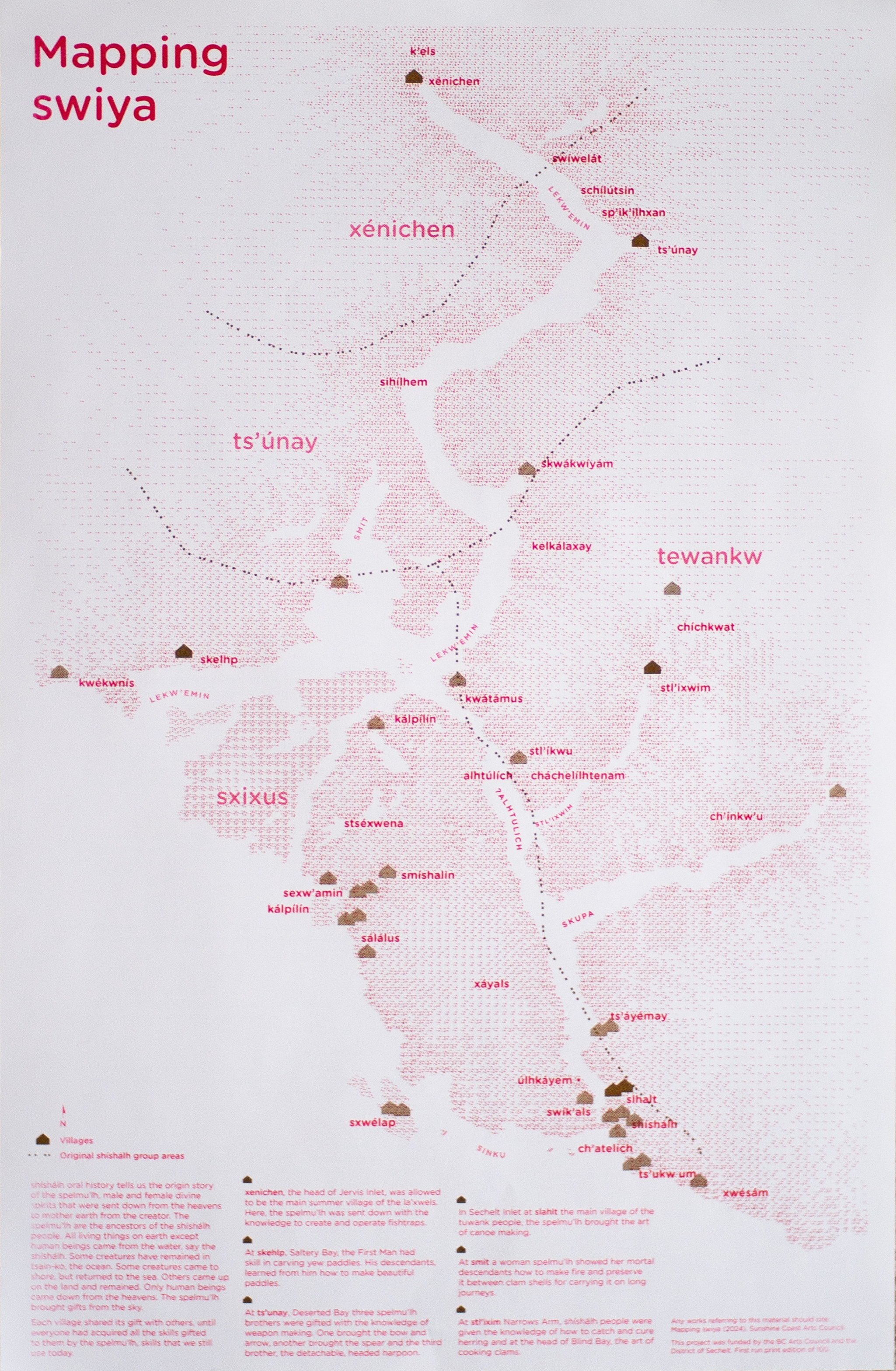
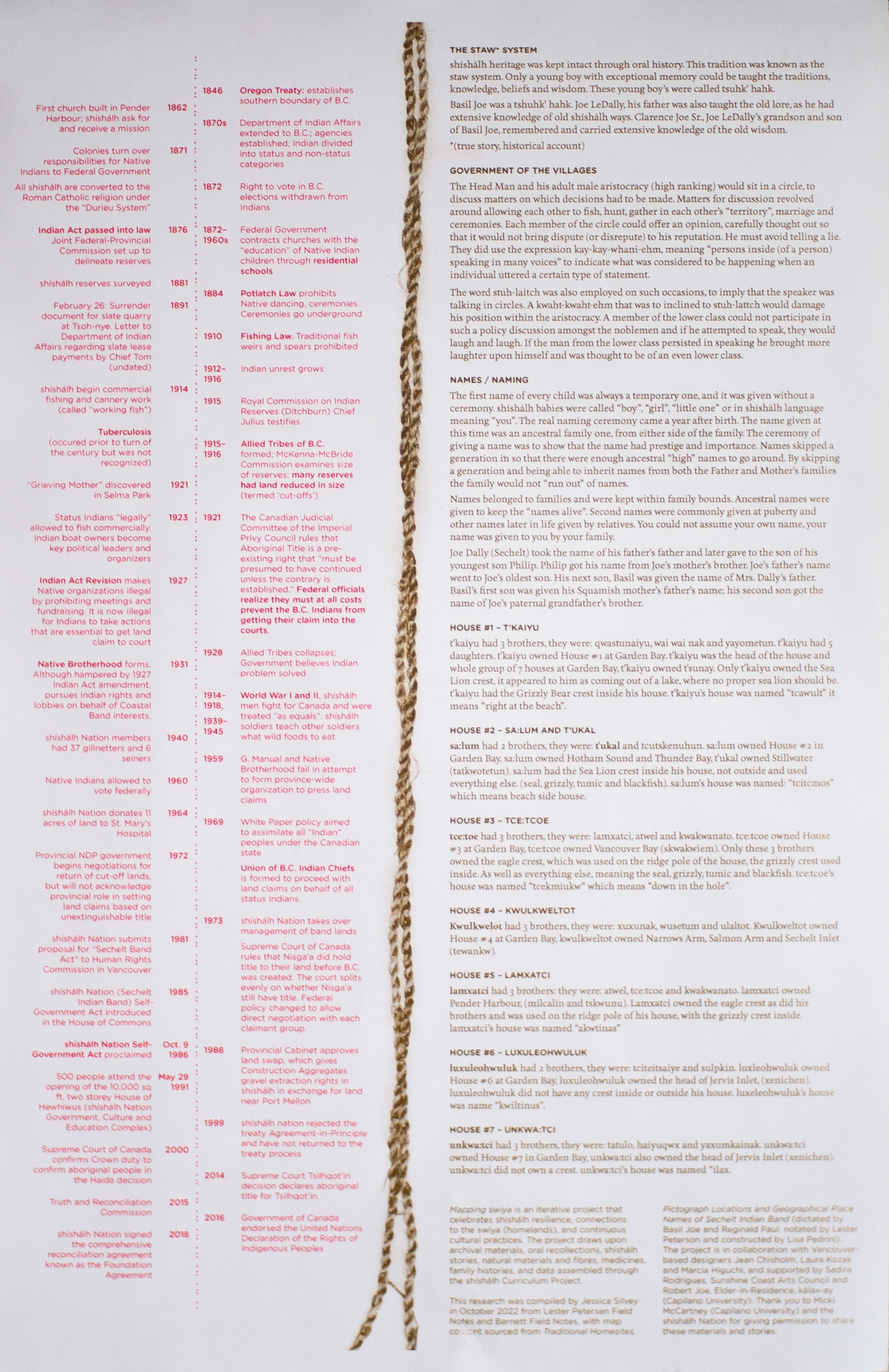
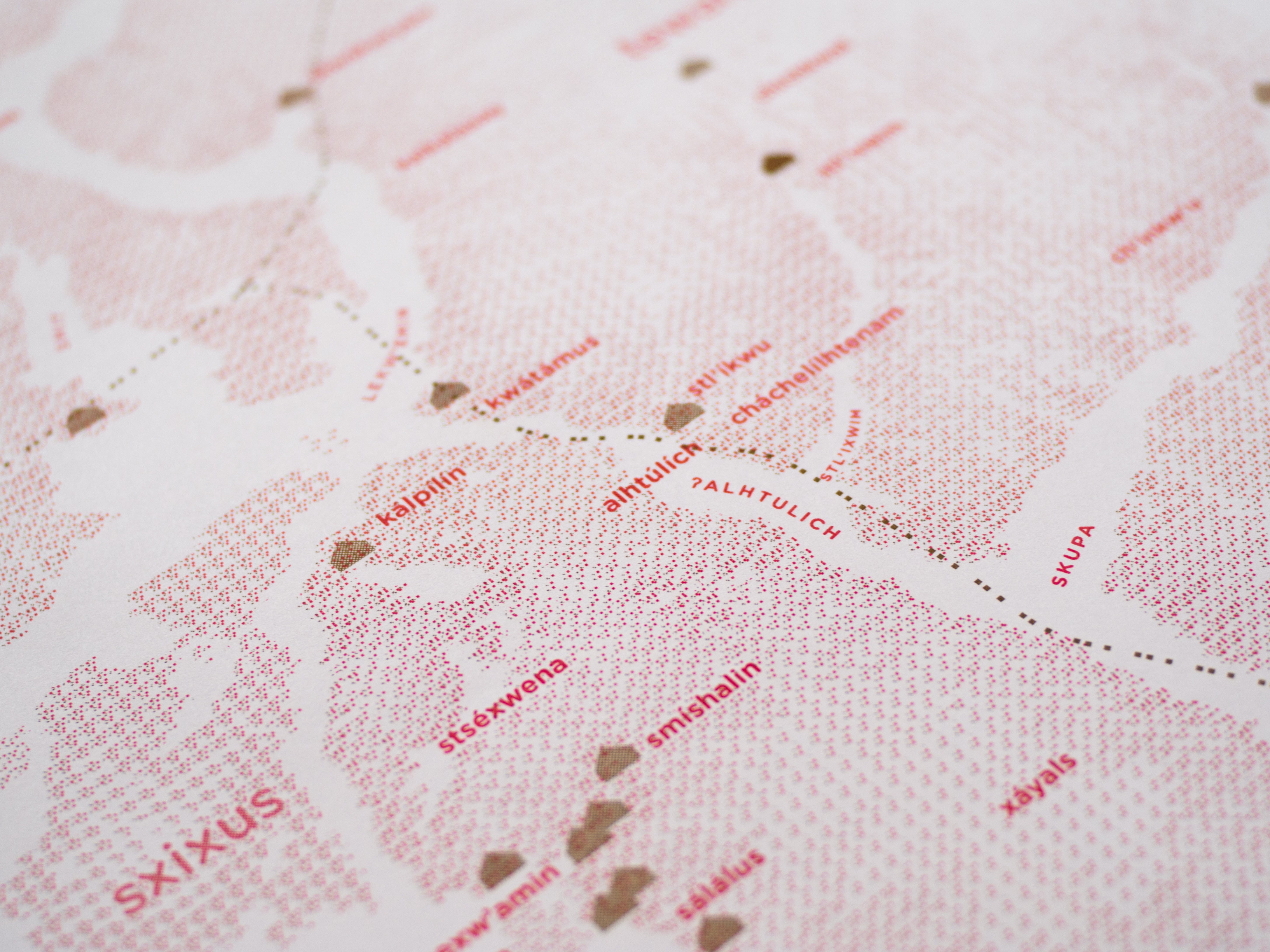
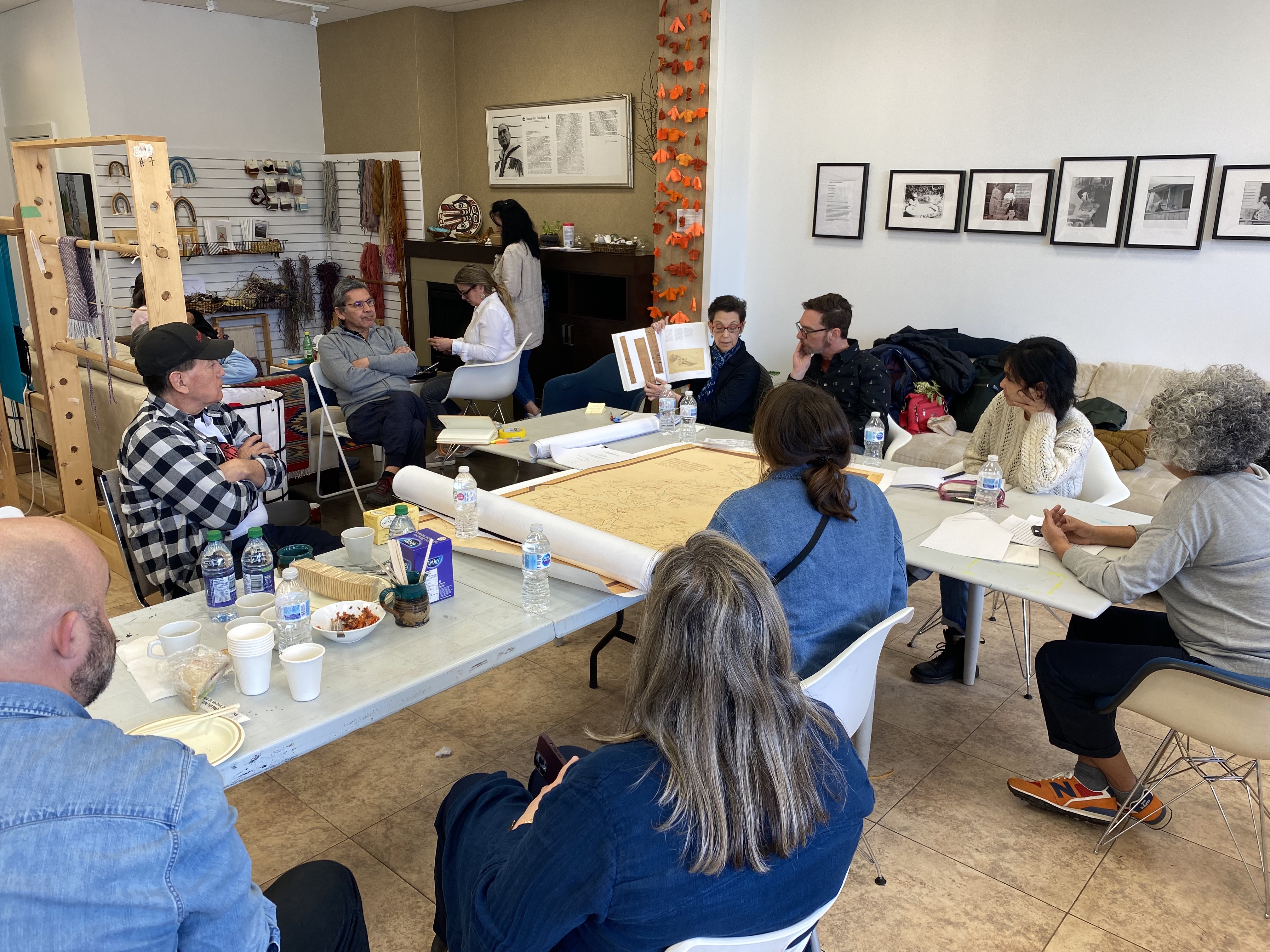
Conditions for Collaboration
2024
2024
Essay and workshop looking at collaborative teaching within an art and design university. Produced with Annie Canto, with support from the ECUAD Teaching and Learning Centre.
Read essay
Read essay
Lheidli: Where the Two Rivers Meet: Decolonizing Cultural Safety Education Through Cultural Connections
2023
2023
Cultural Connections is an Indigenous community-led approach to cultural safety education that seeks to decolonize the healthcare system through making and dialogue.
This project was a collaboration between the Aboriginal Gathering Place and the Health Design Lab at Emily Carr University of Art + Design (ECUAD) and the Director of Aboriginal Education at the College of New Caledonia (CNC).
Read project and exhibition publication
Read Design Research Society paper
Two Rivers Gallery Exhbition News story
This project was a collaboration between the Aboriginal Gathering Place and the Health Design Lab at Emily Carr University of Art + Design (ECUAD) and the Director of Aboriginal Education at the College of New Caledonia (CNC).
Read project and exhibition publication
Read Design Research Society paper
Two Rivers Gallery Exhbition News story

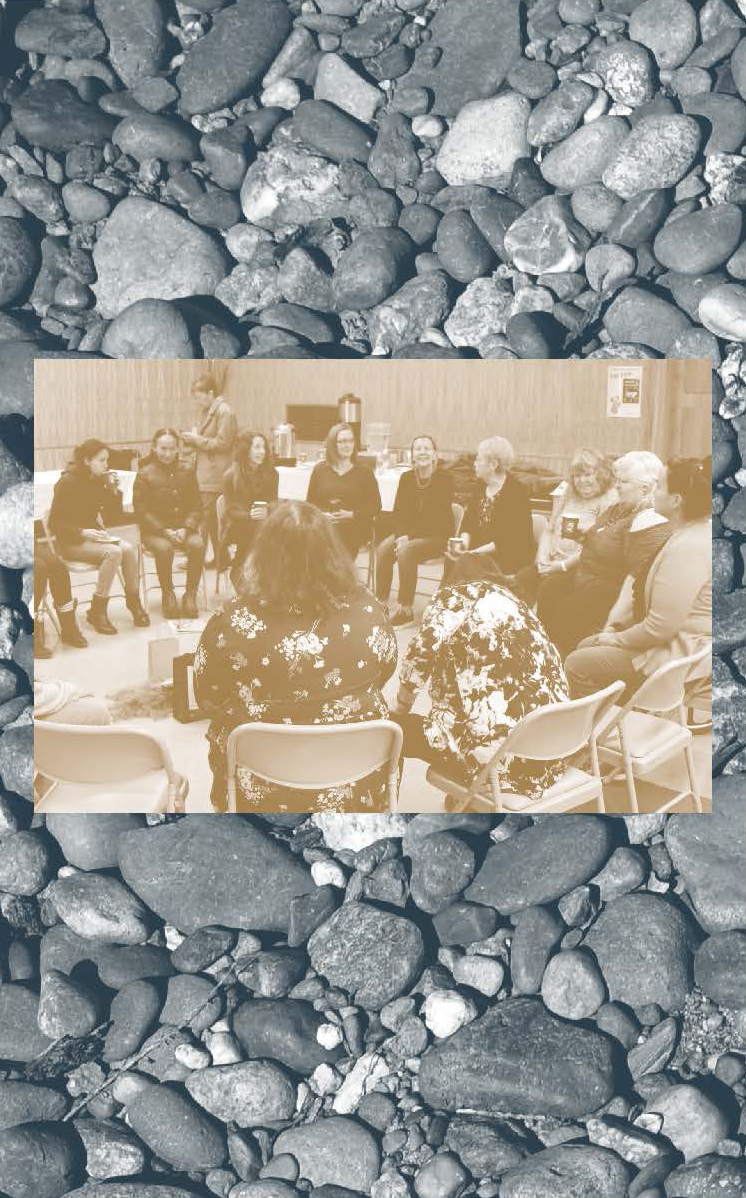




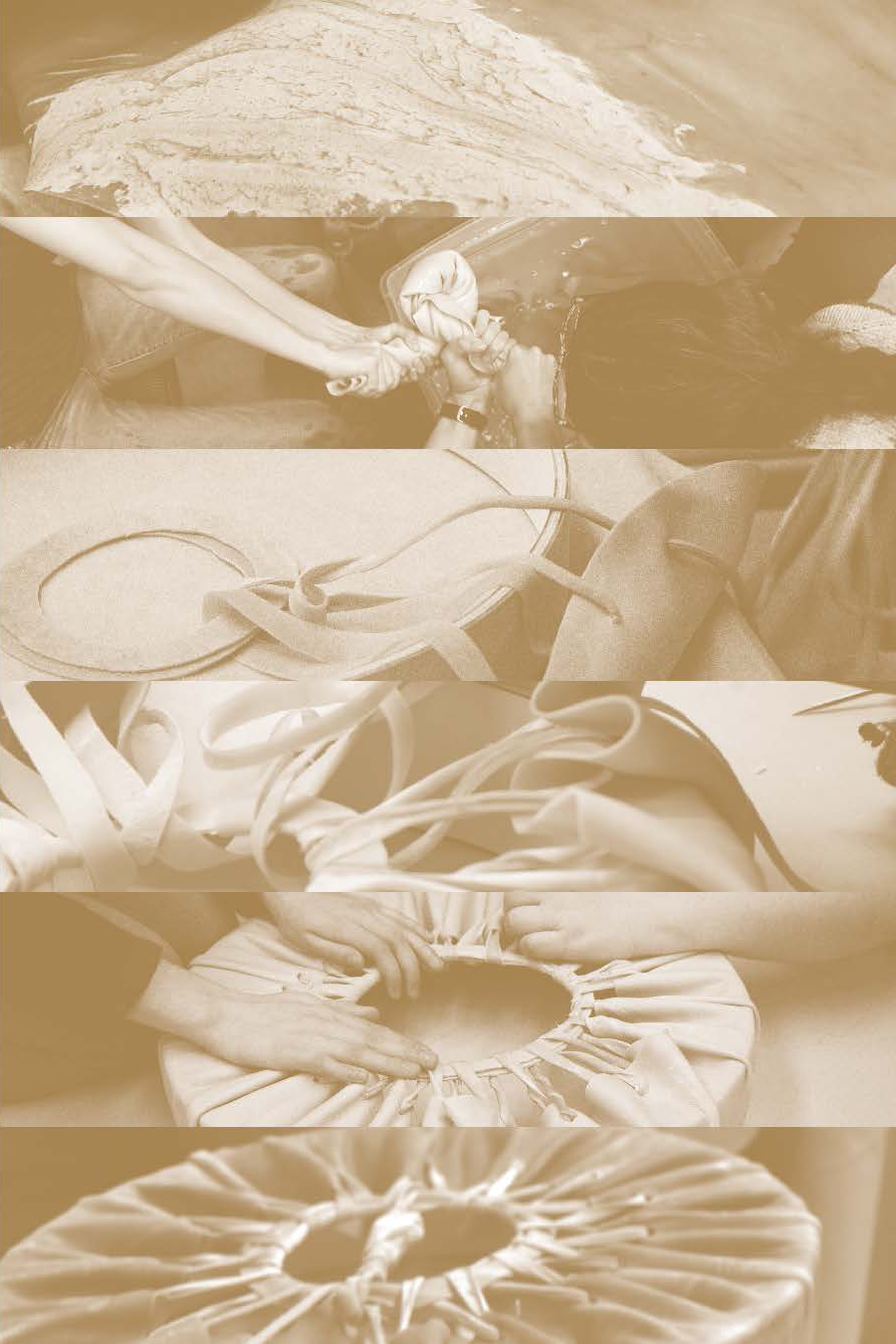
Place-Based Responsibility Context Paper
2021
2021
Written with Laura Kozak, this paper provides a brief context and framing for a series of roundtables, guided walks, class activities, research projects and resource sharing under the broad umbrella of Place-Based Responsibility. This practice invites and explores a variety of forms of gathering, collaboration, and learning as we collectively take up this question.
Read contextual paper
Read contextual paper

POOL: What Can We Learn When We Find New Ways to Gather?
2020
2020
Workshop series created and facilited with with Annie Canto and Nura Ali, through the Satellite x DESIS Residency.
POOL fosters community-based practices that explore new ways of gathering and collective learning. Anti-racist pedagogy, decolonial methodology, and peer-to-peer solidarity make up the core of our practices. With these interests at the heart of our work, this project expands our understanding of community support and activism by exploring new ways to gather that embody relational and mutually supportive ways of being, and challenge the hegemonic structures that disconnect us from the communities and ecologies we live within. We explore new kinds of connectivity that can be fostered in this time of precarity and to learn from the practices of labour organizers, artist/activists, and social justice scholars who are beginning to transition their work to and from distant spaces.
Read glossary
POOL fosters community-based practices that explore new ways of gathering and collective learning. Anti-racist pedagogy, decolonial methodology, and peer-to-peer solidarity make up the core of our practices. With these interests at the heart of our work, this project expands our understanding of community support and activism by exploring new ways to gather that embody relational and mutually supportive ways of being, and challenge the hegemonic structures that disconnect us from the communities and ecologies we live within. We explore new kinds of connectivity that can be fostered in this time of precarity and to learn from the practices of labour organizers, artist/activists, and social justice scholars who are beginning to transition their work to and from distant spaces.
Read glossary
